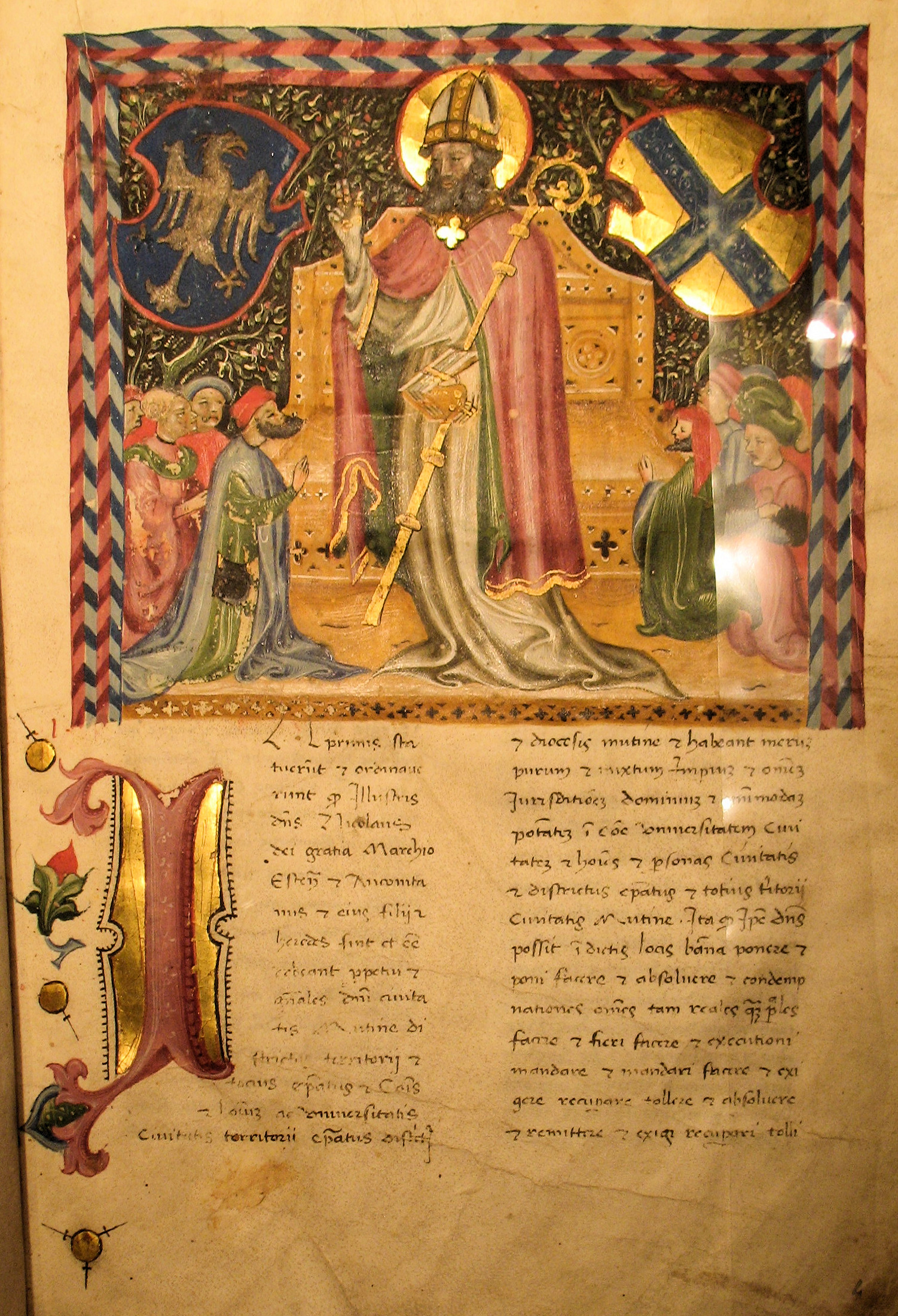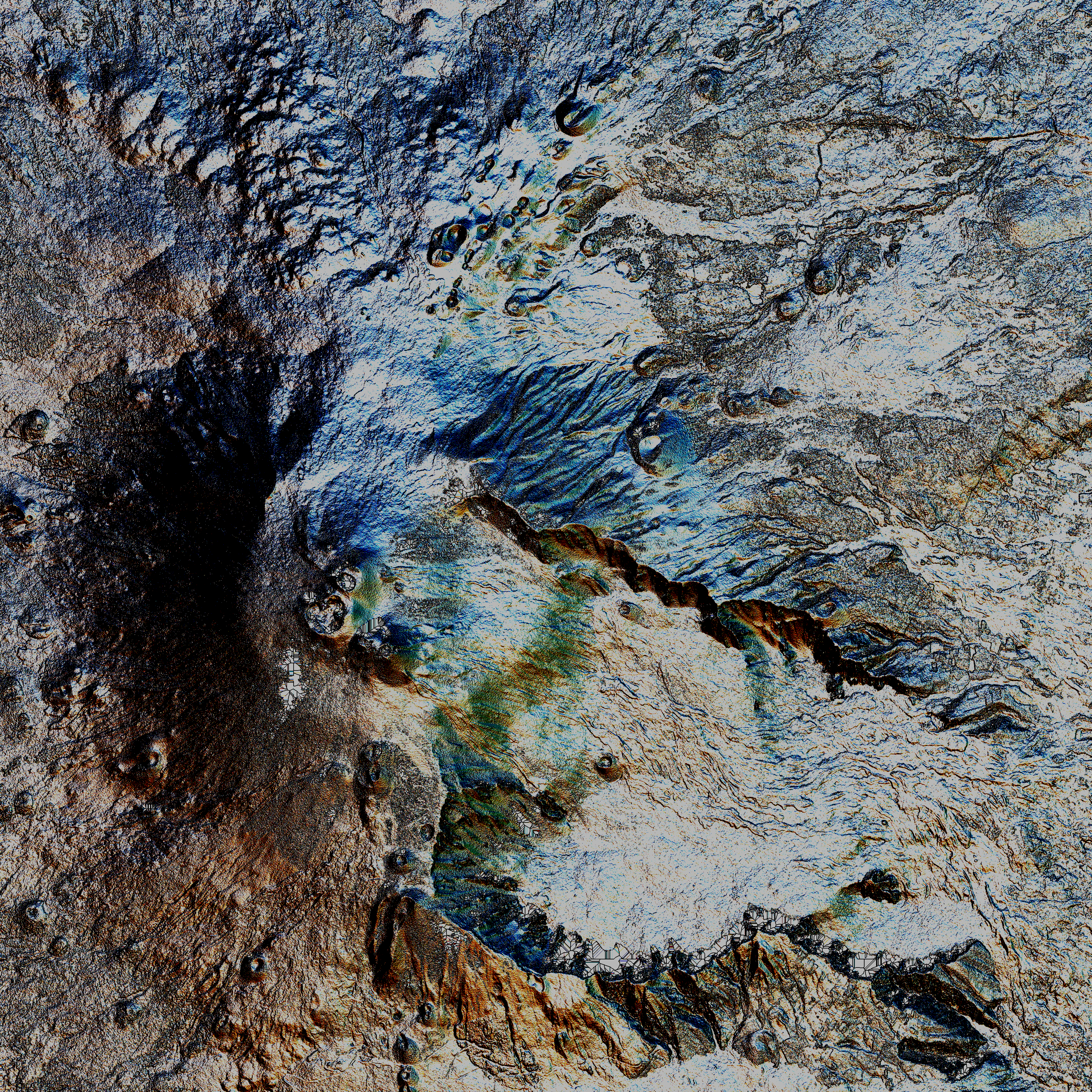|
De Proprietatibus Elementorum
''De Proprietatibus Elementorum'' (English: On the Properties of the Elements) is a Medieval Arabic treatise on geology. It is also known as ''De Causis Proprietatum Elementorum'', ''De Proprietatibus Elementorum et Planetarum'' or simply ''De Elementis''. It was probably written in the ninth or tenth century. The author of the work claimed to be Aristotle, but eventually it was determined that it was an original work by an Arab author. Consequently, the work is now attributed to a Pseudo-Aristotle. History The work did not have a lasting impact on science in the medieval Islamic world, but it became important in Europe after it was translated to Latin by Gerard of Cremona in the twelfth century. By the thirteenth century, it had become one of the three main sources for medieval knowledge on geology, together with Aristotle's ''Meteorology'' and Avicenna's ''De Mineralibus''. These three treatises were an important influence on the study of geology by Albertus Magnus. When scholar ... [...More Info...] [...Related Items...] OR: [Wikipedia] [Google] [Baidu] |
Middle Ages
In the history of Europe, the Middle Ages or medieval period lasted approximately from the late 5th to the late 15th centuries, similar to the post-classical period of global history. It began with the fall of the Western Roman Empire and transitioned into the Renaissance and the Age of Discovery. The Middle Ages is the middle period of the three traditional divisions of Western history: classical antiquity, the medieval period, and the modern period. The medieval period is itself subdivided into the Early, High, and Late Middle Ages. Population decline, counterurbanisation, the collapse of centralized authority, invasions, and mass migrations of tribes, which had begun in late antiquity, continued into the Early Middle Ages. The large-scale movements of the Migration Period, including various Germanic peoples, formed new kingdoms in what remained of the Western Roman Empire. In the 7th century, North Africa and the Middle East—most recently part of the Eastern Ro ... [...More Info...] [...Related Items...] OR: [Wikipedia] [Google] [Baidu] |
Hot Spring
A hot spring, hydrothermal spring, or geothermal spring is a spring produced by the emergence of geothermally heated groundwater onto the surface of the Earth. The groundwater is heated either by shallow bodies of magma (molten rock) or by circulation through faults to hot rock deep in the Earth's crust. In either case, the ultimate source of the heat is radioactive decay of naturally occurring radioactive elements in the Earth's mantle, the layer beneath the crust. Hot spring water often contains large amounts of dissolved minerals. The chemistry of hot springs ranges from acid sulfate springs with a pH as low as 0.8, to alkaline chloride springs saturated with silica, to bicarbonate springs saturated with carbon dioxide and carbonate minerals. Some springs also contain abundant dissolved iron. The minerals brought to the surface in hot springs often feed communities of extremophiles, microorganisms adapted to extreme conditions, and it is possible that life on Earth had its ... [...More Info...] [...Related Items...] OR: [Wikipedia] [Google] [Baidu] |
Scientific Works Of The Medieval Islamic World
Science is a systematic endeavor that builds and organizes knowledge in the form of testable explanations and predictions about the universe. Science may be as old as the human species, and some of the earliest archeological evidence for scientific reasoning is tens of thousands of years old. The earliest written records in the history of science come from Ancient Egypt and Mesopotamia in around 3000 to 1200 BCE. Their contributions to mathematics, astronomy, and medicine entered and shaped Greek natural philosophy of classical antiquity, whereby formal attempts were made to provide explanations of events in the physical world based on natural causes. After the fall of the Western Roman Empire, knowledge of Greek conceptions of the world deteriorated in Western Europe during the early centuries (400 to 1000 CE) of the Middle Ages, but was preserved in the Muslim world during the Islamic Golden Age and later by the efforts of Byzantine Greek scholars who brought Greek man ... [...More Info...] [...Related Items...] OR: [Wikipedia] [Google] [Baidu] |
Medieval Literature
Medieval literature is a broad subject, encompassing essentially all written works available in Europe and beyond during the Middle Ages (that is, the one thousand years from the fall of the Western Roman Empire ca. AD 500 to the beginning of the Renaissance in the 14th, 15th or 16th century, depending on country). The literature of this time was composed of religious writings as well as secular works. Just as in modern literature, it is a complex and rich field of study, from the utterly sacred to the exuberantly profane, touching all points in-between. Works of literature are often grouped by place of origin, language, and genre. Languages Outside of Europe, medieval literature was written in Ethiopic, Syriac, Coptic, Japanese, Chinese, and Arabic, among many other languages. In Western Europe, Latin was the common language for medieval writing, since Latin was the language of the Roman Catholic Church, which dominated Western and Central Europe, and since the Church was v ... [...More Info...] [...Related Items...] OR: [Wikipedia] [Google] [Baidu] |
10th-century Arabic Books
1 (one, unit, unity) is a number representing a single or the only entity. 1 is also a numerical digit and represents a single unit of counting or measurement. For example, a line segment of ''unit length'' is a line segment of length 1. In conventions of sign where zero is considered neither positive nor negative, 1 is the first and smallest positive integer. It is also sometimes considered the first of the infinite sequence of natural numbers, followed by 2, although by other definitions 1 is the second natural number, following 0. The fundamental mathematical property of 1 is to be a multiplicative identity, meaning that any number multiplied by 1 equals the same number. Most if not all properties of 1 can be deduced from this. In advanced mathematics, a multiplicative identity is often denoted 1, even if it is not a number. 1 is by convention not considered a prime number; this was not universally accepted until the mid-20th century. Additionally, 1 is the ... [...More Info...] [...Related Items...] OR: [Wikipedia] [Google] [Baidu] |
9th-century Arabic Books
The 9th century was a period from 801 ( DCCCI) through 900 ( CM) in accordance with the Julian calendar. The Carolingian Renaissance and the Viking raids occurred within this period. In the Middle East, the House of Wisdom was founded in Abbasid Baghdad, attracting many scholars to the city. The field of algebra was founded by the Muslim polymath al-Khwarizmi. The most famous Islamic Scholar Ahmad ibn Hanbal was tortured and imprisoned by Abbasid official Ahmad ibn Abi Du'ad during the reign of Abbasid caliph al-Mu'tasim and caliph al-Wathiq. In Southeast Asia, the height of the Mataram Kingdom happened in this century, while Burma would see the establishment of the major kingdom of Pagan. Tang China started the century with the effective rule under Emperor Xianzong and ended the century with the Huang Chao rebellions. While the Maya experienced widespread political collapse in the central Maya region, resulting in internecine warfare, the abandonment of cities, and a northward ... [...More Info...] [...Related Items...] OR: [Wikipedia] [Google] [Baidu] |
Naphtha
Naphtha ( or ) is a flammable liquid hydrocarbon mixture. Mixtures labelled ''naphtha'' have been produced from natural gas condensates, petroleum distillates, and the distillation of coal tar and peat. In different industries and regions ''naphtha'' may also be crude oil or refined products such as kerosene. ''Nephi'' and ''naphthar'' are sometimes used as synonyms. It is also known as Shellite in Australia. Etymology The word ''naphtha'' is from Latin and Ancient Greek (νάφθα), derived from Middle Persian ''naft'' ("wet", "naphtha"), the latter meaning of which was an assimilation from the Akkadian ''napṭu'' (see Semitic relatives such as Arabic ''nafṭ'' petroleum" Syriac ܢܰܦܬܳܐ ''naftā'') and Hebrew נֵפְט ''neft'' (meaning petroleum). In Ancient Greek, it was used to refer to any sort of petroleum or pitch. There is a hypothesis that the word is connected with the name of the Indo-Iranian god Apam Napat, which occurs in Vedic and in Avestic; ... [...More Info...] [...Related Items...] OR: [Wikipedia] [Google] [Baidu] |
Xenophanes
Xenophanes of Colophon (; grc, Ξενοφάνης ὁ Κολοφώνιος ; c. 570 – c. 478 BC) was a Greek philosopher A philosopher is a person who practices or investigates philosophy. The term ''philosopher'' comes from the grc, φιλόσοφος, , translit=philosophos, meaning 'lover of wisdom'. The coining of the term has been attributed to the Greek th ..., theologian, poet, and critic of Homer from Ionia who travelled throughout the Greek-speaking world in early Classical Antiquity. As a poet, Xenophanes was known for his critical style, writing poems that are considered among the first satires. He also composed elegiac couplets that criticised his society's traditional values of wealth, excesses, and athletic victories. He also criticised Homer and the other poets in his works for representing the gods as foolish or morally weak. His poems have not survived intact; only fragments of some of his work survives in quotations by later philosophers and literary c ... [...More Info...] [...Related Items...] OR: [Wikipedia] [Google] [Baidu] |
Thales
Thales of Miletus ( ; grc-gre, Θαλῆς; ) was a Greek mathematician, astronomer, statesman, and pre-Socratic philosopher from Miletus in Ionia, Asia Minor. He was one of the Seven Sages of Greece. Many, most notably Aristotle, regarded him as the first philosopher in the Greek tradition, and he is otherwise historically recognized as the first individual known to have entertained and engaged in scientific philosophy.Frank N. Magill''The Ancient World: Dictionary of World Biography'', Volume 1 Routledge, 2003 He is often referred to as the Father of Science. Thales is recognized for breaking from the use of mythology to explain the world and the universe, instead explaining natural objects and phenomena by offering naturalistic theories and hypotheses. Almost all the other pre-Socratic philosophers followed him in explaining nature as deriving from a unity of everything based on the existence of a single ultimate substance instead of using mythological explanations. A ... [...More Info...] [...Related Items...] OR: [Wikipedia] [Google] [Baidu] |
Democritus
Democritus (; el, Δημόκριτος, ''Dēmókritos'', meaning "chosen of the people"; – ) was an Ancient Greek pre-Socratic philosopher from Abdera, primarily remembered today for his formulation of an atomic theory of the universe. None of his work has survived. Life Although many anecdotes about Democritus' life survive, their authenticity cannot be verified and modern scholars doubt their accuracy. Democritus was said to be born in the city of Abdera in Thrace, an Ionian colony of Teos,. Ancient accounts of his life have claimed that he lived to a very old age, with some writers claiming that he was over a hundred years old at the time of his death. Philosophy and science states that the relation between Democritus and his predecessor Leucippus is not clear; while earlier ancient sources such as Aristotle and Theophrastus credit Leucippus with the invention of atomism and credit its doctrines to both philosophers, later sources only credit Democritus, making defi ... [...More Info...] [...Related Items...] OR: [Wikipedia] [Google] [Baidu] |
Theophrastus
Theophrastus (; grc-gre, Θεόφραστος ; c. 371c. 287 BC), a Greek philosopher and the successor to Aristotle in the Peripatetic school. He was a native of Eresos in Lesbos.Gavin Hardy and Laurence Totelin, ''Ancient Botany'', Routledge, 2015, p. 8. His given name was Tyrtamus (); his nickname (or 'godly phrased') was given by Aristotle, his teacher, for his "divine style of expression". He came to Athens at a young age and initially studied in Plato's school. After Plato's death, he attached himself to Aristotle who took to Theophrastus in his writings. When Aristotle fled Athens, Theophrastus took over as head of the Lyceum. Theophrastus presided over the Peripatetic school for thirty-six years, during which time the school flourished greatly. He is often considered the father of botany for his works on plants. After his death, the Athenians honoured him with a public funeral. His successor as head of the school was Strato of Lampsacus. The interests of Theophrastus ... [...More Info...] [...Related Items...] OR: [Wikipedia] [Google] [Baidu] |
Mount Etna
Mount Etna, or simply Etna ( it, Etna or ; scn, Muncibbeḍḍu or ; la, Aetna; grc, Αἴτνα and ), is an active stratovolcano on the east coast of Sicily, Italy, in the Metropolitan City of Catania, between the cities of Messina and Catania. It lies above the convergent plate margin between the African Plate and the Eurasian Plate. It is one of the tallest active volcanoes in Europe, and the tallest peak in Italy south of the Alps with a current height (July 2021) of , though this varies with summit eruptions. Over a six-month period in 2021, Etna erupted so much volcanic material that its height increased by approximately , and the southeastern crater is now the tallest part of the volcano. Etna covers an area of with a basal circumference of . This makes it by far the largest of the three active volcanoes in Italy, being about two and a half times the height of the next largest, Mount Vesuvius. Only Mount Teide on Tenerife in the Canary Islands surpasses it in ... [...More Info...] [...Related Items...] OR: [Wikipedia] [Google] [Baidu] |

.jpg)









